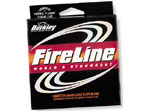



















|
When Walleyes Attack
By Captain Mark Martin
Nothing awakens magnum walleyes like the dark of night. For all their
usual
stealth, they rev up in the wee hours, when they slip up into the shallows
or slide out over open water to mow down baitfish. You should be there,
too.
I learned the basics from my grandfather back in the days before electronics,
when we¹d place floating jugs to mark a drop-off, then troll minnow
baits down the edge with a small outboard. While times have changed with
the advent of fish locators and trolling motors, the venerable practice
of pulling Rapalas at night is, at its core, the same. But over the last
few decades I¹ve refined the system not only with electronics, but
with line-counter reels, shad-style baits, rod motions to boost the bait¹s
action, even some deep-water work. Altogether, the improvements on a time-honored
system‹with all due respect to my grandfather‹yield even more and bigger
walleyes. Here how it¹s done.
Shallow and Deep
In any system, the biggest fish prowl at night. It's that simple. To
start the search, whether I'm on the Great Lakes, a connecting river mouth
or an inland lake, I look for flats, edges and emerging weeds. The reason
is that these areas hold baitfish, the primary reason for walleyes are
there, and feeding, in the first place. Smelt, alewives and perch are the
key forage, depending on the water, and determine the fishes' wherabouts.
Most times, I begin in water 12 feet or less. I always keep my eyes
glued to
my Lowrance LMS-350A, a locator with GPS capabilities. That way, if
I see
bait on the screen, I can punch in an icon to mark the location. When
I mark
another pod of bait, I¹ll key in another icon, then troll between
the two. All the while, it¹s important to note the precise height
of the baitfish in the water column. That is, after all, where you want
your lures. One more asset of the Lowrance is its ability to gauge speed
even at a snail's pace of less than 1.5 mph. How? Turn the "pinning" setting
off a little trick to track your speed more precisely.
But not all walleyes will hold in the shallows, particularly around
Great Lakes river mouths. Years ago I stumbled across the deep-water pattern
when I tangled some lines (yes, it happens to me, too) and strayed over
30 feet
of water. There I saw the arcs of predators I suspected were salmon.
But when I put the trolling motor down and started fishing, we couldn't
keep the walleyes off.
Suspended walleyes over the depths are primarily a spring thing, when
smelt
stage before their runs up the river. Look for the clouds of bait over
20 to
60 feet, then put your lures at the same depths to connect.
Lures, Line, Length
Running at the walleyes¹ level is not that difficult with all
the work I've done to perfect the proper amount of line out with appropriate
weight ahead of a lure. My favorite bait is a No.
13 Original Rapala, and I know that at nighttime speeds of 1.0 mph
to 1.3 mph, the lure dives to eight feet with 63 feet on  20-pound Berkley
FireLine with three No. 7 split shots crimped a couple of feet above
the Rap. With 83 feet of line, the Rapala reaches 10 feet‹ideal for cruising
in 12 feet of water. With Rapala Shad
Raps, I get a No. 5 to reach six feet with 63 to 73 feet of line
(no weight), a No. 7 to hit seven to 10 feet with 100 to 110 feet of line
a No. 9 to track at 10 to 13 feet with 140 to 150 feet of line. (Note:
Don¹t even try monofilament around knifelike zebra mussels.) To add
some extra attraction to the lures, I paint a small band with phosphorescent
paint around the nose and tail f the lures and add a thin strip of reflective
Witchcraft tape to the lure¹s side for extra flash. Sometime doctored
lures will outfish plain Rapalas three to one.
20-pound Berkley
FireLine with three No. 7 split shots crimped a couple of feet above
the Rap. With 83 feet of line, the Rapala reaches 10 feet‹ideal for cruising
in 12 feet of water. With Rapala Shad
Raps, I get a No. 5 to reach six feet with 63 to 73 feet of line
(no weight), a No. 7 to hit seven to 10 feet with 100 to 110 feet of line
a No. 9 to track at 10 to 13 feet with 140 to 150 feet of line. (Note:
Don¹t even try monofilament around knifelike zebra mussels.) To add
some extra attraction to the lures, I paint a small band with phosphorescent
paint around the nose and tail f the lures and add a thin strip of reflective
Witchcraft tape to the lure¹s side for extra flash. Sometime doctored
lures will outfish plain Rapalas three to one.
Depending on the night, the walleyes might be cruising on top or running
down deeper in the water column. It¹s up to you to watch your electronics
and run your lures at the level you see the bait. Often, you won¹t
be fishing any structure in particular, just the pods of bait.
Most of the time, while I"m running my Lund
2025 with my 107-pound-thrust
Motor
Guide foot-pedal trolling motor, I hand-hold my rod. With rod in hand,
I sweep the bait forward a couple of feet every minute or two, slowly
letting it back on a fairly tight line. The extra speed, combined with
the flutter backward, often seals the deal on a following walleye. (If
you don¹t have a speed gauge, put your trolling motor on a speed so
that when you hold the rod still you don¹t feel the lure wobble but
when you pull it forward you do.) An excellent rod to hand-hold is the
6-foot, 10-inch Berkley Lightning Rod in the Gary
Roach Signature Series. The baitcasting rod allows you not only to
put on a line-counter reel but to have more muscle when fighting big fish.
Beyond rods, electronics and trolling motors, there¹s another accessory
that
makes life easier. You can light up your front fishing platform‹and
tie lures, unhook fish and solve tangles‹with a bow light from Attwood
that packs an accompanying task light which functions like a desk lamp.
While nighttime is the great equalizer when matching wits with monster
walleyes, the right equipment and knowledge of their habits in the dark
further tilt the odds in your favor. So head out when the sun sets, turn
your trolling motor and electronics on, then be prepared. Like the X-Files,
the biggest fish of the season are out there.
Equipment used
 Lund 2025 Pro
V
Lund 2025 Pro
V
 225
HP Optimax
225
HP Optimax
 9.9
four stroke kicker
9.9
four stroke kicker
 Motor Guide
foot-pedal trolling motor
Motor Guide
foot-pedal trolling motor
 Shad
Raps and No.
13 Original Rapala
Shad
Raps and No.
13 Original Rapala
 Gary
Roach Signature Series
Gary
Roach Signature Series
Walleyes Inc. web site is maintained
by Randy
Tyler Fishing the In-Fisherman Professional Walleye Circuit, Masters
Walleye Circuit, RCL and the Team Walleye Circuit. All rights reserved.
Copyright 1999/2001
Please visit these site sponsors
Daiichi/Tru-Turn Hooks,
Lindy Little Joe, R-A.M
Mounting Systems, Ranger boats,
Mercury Marine, Bedford
Sales , Hamby's Beaching Bumpers,
Goldeneye Marine products, Panther
Marine Products, Webfoots body
sock, Bait Rigs Tackle

|

 Lund 2025 Pro
V
Lund 2025 Pro
V